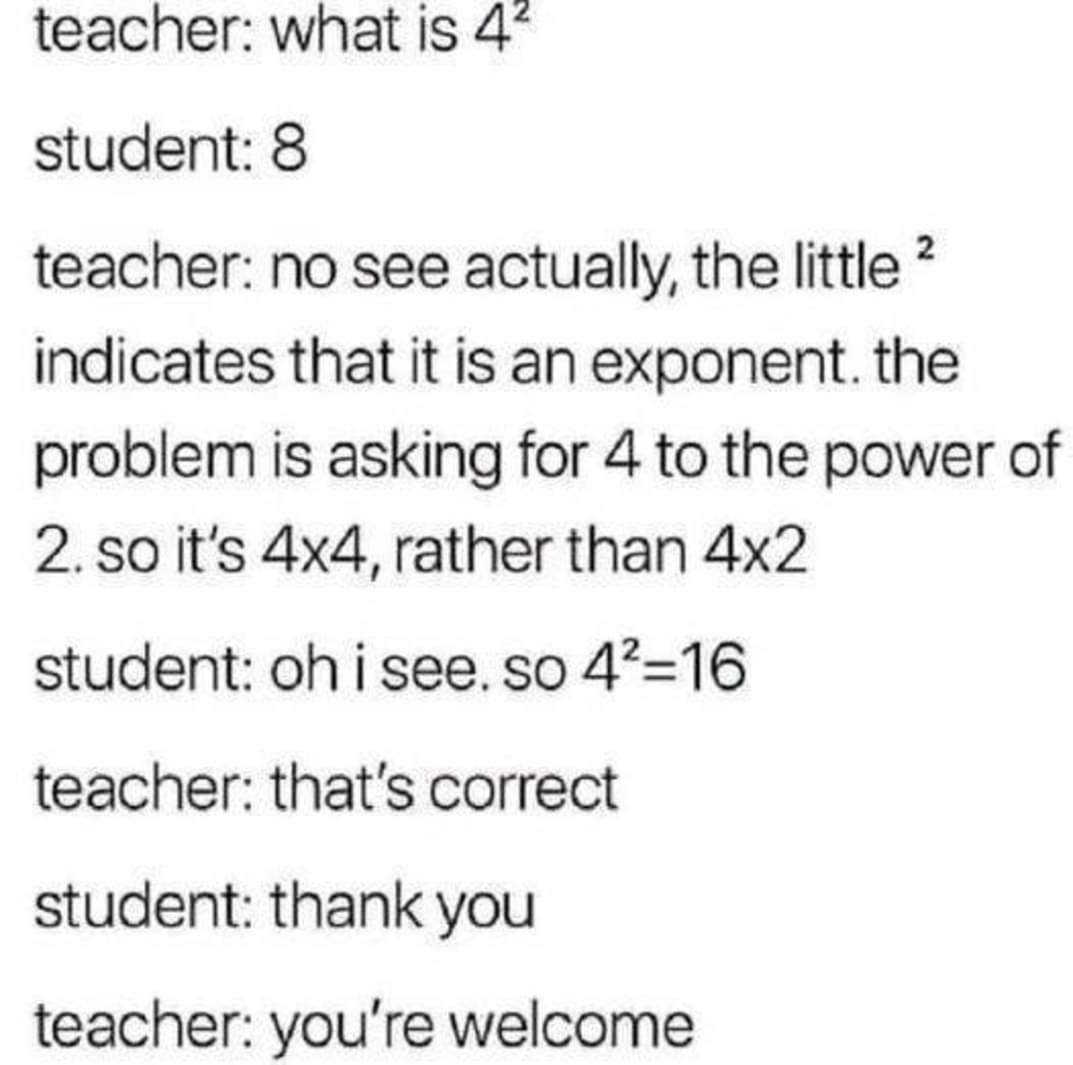this post was submitted on 21 Mar 2024
72 points (67.6% liked)
Science Memes
11597 readers
1212 users here now
Welcome to c/science_memes @ Mander.xyz!
A place for majestic STEMLORD peacocking, as well as memes about the realities of working in a lab.

Rules
- Don't throw mud. Behave like an intellectual and remember the human.
- Keep it rooted (on topic).
- No spam.
- Infographics welcome, get schooled.
This is a science community. We use the Dawkins definition of meme.
Research Committee
Other Mander Communities
Science and Research
Biology and Life Sciences
- !abiogenesis@mander.xyz
- !animal-behavior@mander.xyz
- !anthropology@mander.xyz
- !arachnology@mander.xyz
- !balconygardening@slrpnk.net
- !biodiversity@mander.xyz
- !biology@mander.xyz
- !biophysics@mander.xyz
- !botany@mander.xyz
- !ecology@mander.xyz
- !entomology@mander.xyz
- !fermentation@mander.xyz
- !herpetology@mander.xyz
- !houseplants@mander.xyz
- !medicine@mander.xyz
- !microscopy@mander.xyz
- !mycology@mander.xyz
- !nudibranchs@mander.xyz
- !nutrition@mander.xyz
- !palaeoecology@mander.xyz
- !palaeontology@mander.xyz
- !photosynthesis@mander.xyz
- !plantid@mander.xyz
- !plants@mander.xyz
- !reptiles and amphibians@mander.xyz
Physical Sciences
- !astronomy@mander.xyz
- !chemistry@mander.xyz
- !earthscience@mander.xyz
- !geography@mander.xyz
- !geospatial@mander.xyz
- !nuclear@mander.xyz
- !physics@mander.xyz
- !quantum-computing@mander.xyz
- !spectroscopy@mander.xyz
Humanities and Social Sciences
Practical and Applied Sciences
- !exercise-and sports-science@mander.xyz
- !gardening@mander.xyz
- !self sufficiency@mander.xyz
- !soilscience@slrpnk.net
- !terrariums@mander.xyz
- !timelapse@mander.xyz
Memes
Miscellaneous
founded 2 years ago
MODERATORS
you are viewing a single comment's thread
view the rest of the comments
view the rest of the comments

No, copilot solve this test
Answer:
To solve the expression ( e^{\int_0^1 x^2+x+1 , dx} ), we first need to calculate the integral of ( x^2+x+1 ) from 0 to 1.
The integral of ( x^2+x+1 ) is: [ \int x^2+x+1 , dx = \frac{x^3}{3} + \frac{x^2}{2} + x + C ]
Evaluating this from 0 to 1 gives us: [ \left[ \frac{x^3}{3} + \frac{x^2}{2} + x \right]_0^1 = \left( \frac{1}{3} + \frac{1}{2} + 1 \right) - \left( 0 + 0 + 0 \right) = \frac{11}{6} ]
Now, we raise ( e ) to the power of this result: [ e^{\frac{11}{6}} ]
This is the solution to the given expression. If you need a numerical approximation, ( e^{\frac{11}{6}} ) is approximately 4.953.